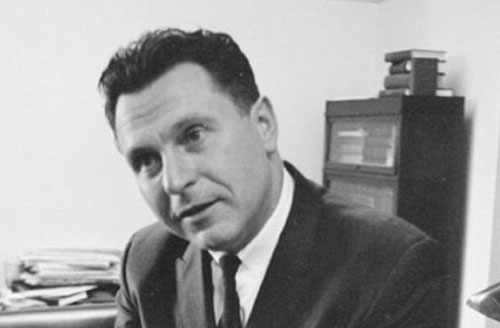août 20, 2013
How To Be a Good Minister: Allan MacEachen knew how to do it
Par Colin Robertson

As ministers, new and old, begin anew the process of governing, they might reflect on the career of Allan MacEachen.
Mr. MacEachen, who recently celebrated his 92nd birthday, worked on Parliament Hill from 1953 to 1995. He sat as a private member, as senior advisor in the office of opposition leader Lester B. Pearson, then served in the cabinets of Mr. Pearson, Pierre Trudeau, John Turner and Jean Chrétien before his retirement from the Senate in 1996.
Through four decades he served in a dozen cabinet portfolios, including Minister of Finance, Health and Welfare, Labour, and Manpower and Immigration. He served several stints in External Affairs (as it was then called) and as Government House Leader. Mr. MacEachen got things done, including the passage of Medicare.
Still, Allan MacEachen’s first priority was always to his constituency in Cape Breton. Not a day passed without a call and concentrated attention to the riding. He had lost, by fourteen votes, his seat in the Diefenbaker sweep of 1958. It would never happen again.
Mr. MacEachen practiced retail politics and he understood the redemptive power of government and the importance of helping people to “put bread on the table.” While he was in cabinet, Cape Breton would receive funding for docks, for lighthouses, for the heavy water-plant, and for those who worked in the coal mines. As a regional minister, he made sure Nova Scotia and the Atlantic received similar attention.
As minister, he would keep a piece of paper in his pocket, neatly divided into two columns. On the left were carefully inscribed the two or three things that mattered to him – like his next quarterly with his old MIT professor, U.S. secretary of state George Shultz. Mr. MacEachen understood the importance of the U.S. relationship. Always on list, of course, was also something for the riding or region.
On the other side of this ledger, brought to him daily by his senior officials, were the urgent and the immediate. It was a long list. After their barrage of briefings, Mr. MacEachen would steer the conversation back to his agenda. Out would come the list and the request for an update on progress.
For Allan MacEachen, good policy made for good politics and good politics was usually good policy.
On departmental matters, he benefitted from a practice dating to the early days of External Affairs but that exists no longer. Memoranda to the minister would always include the name and telephone number of the originating author, usually the desk officer and subject-matter expert, in the upper right hand corner.
Canny ministers like Mr. MacEachen would call the desk officer to get their opinion. Flora MacDonald was famous for her calls to junior officers.
While civil service advice is intended to be fearless, there is a tendency by those higher up the ladder to shade and shave to what they think the minister of the day would like to hear. The result is homogenized recommendations, pale shadows of the original proposition.
Mr. MacEachen had a lot of time for deputy ministers, as long as they knew their stuff. Those that didn’t found themselves disinvited from briefings and, in short order, replaced. He expected insight and intelligence from the senior civil servants. He would read the cabled dispatches, annotate his comments, as he would also do with the cabinet memoranda, and send them back to the department for action.
There was another feature to earlier governments, since discontinued: the embedding of junior and mid-level civil servants within the ministerial staff.
With the title of departmental assistant, they would daily grease the divide between the ministerial staff and permanent civil service. This had the additional benefit of giving these officers a political education that they never forgot. In the longer term it made for a better civil service because they understood the way it worked.
Mr. MacEachen depended heavily on his political staff, especially for constituency matters. He recruited well and the alumni have become university presidents, cabinet ministers and CEOs. There was no five-year rule, since imposed by the Harper government as part of their accountability commitments, prohibiting exempt staff from working, post-politics, in positions now deemed to be lobbyists.
While it increases accountability and prevents a too cosy transition between government and government relations, the new approach effectively narrows the talent pool and curbs the incentive for public service. Bill Clinton had imposed a similar rule when he become president, but subsequently lifted it, recognizing that the public good is better advanced by being able to draw on the best possible talent for those who do the nation’s business.
Different times come with different mores, but it is useful to recall these earlier experiences and the practices of that era.
Reproduced with permission of the author.
A former diplomat, Colin Robertson served as a departmental assistant to Allan J. MacEachen. He is vice-president of the Canadian Defence and Foreign Affairs Institute and senior strategic advisor to McKenna, Long and Aldridge.


